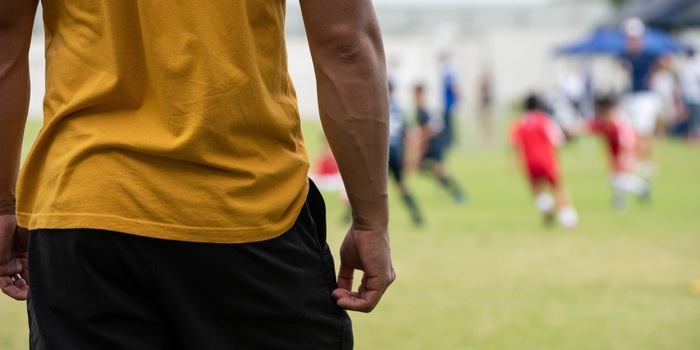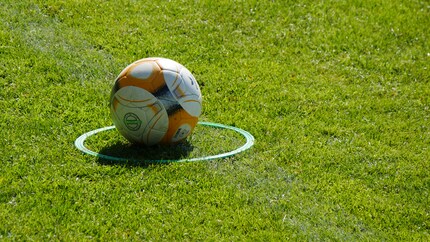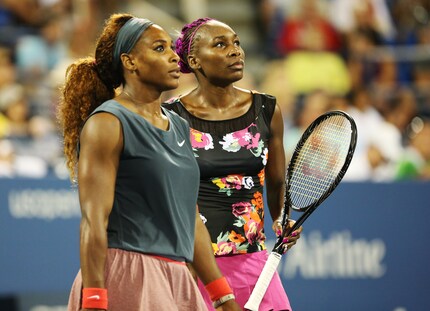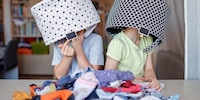

Children playing sport: what parents do wrong
Many parents find it difficult to keep their opinion of their children's sporting performance to themselves. Even those who can still control themselves on the sidelines start debriefing on the journey home. This can only go wrong.
Imagine if parents, especially fathers, behaved the same way at school during the week as they do at sports competitions at the weekend. All hell would break loose in the classroom. «Multiply now! Looos! Solve the equation!» - «There's a comma before and after the relative clause!» - «Hey, teacher, how much longer?»
While hardly any parent would think that their son or daughter is well on the way to becoming a maths professor because their child has mastered the multiplication tables without a hitch, things are quite different in sport. Especially in disciplines that promise a career, parental ambition breaks through unabashedly. It could turn into something big. Just like with Frank Lampard, who was his father's project as a footballer.
I have observed the tragedy on sports fields from three different perspectives: As a child, as a coach and as a father. With team-mates, on the sidelines of tournaments and in other clubs. Fortunately, the majority of parents behave correctly. As is usually the case, it is a small but loud minority that causes problems and ruins the weekend for more than just their own child.
The species that coaches from the sidelines or the stands and drowns out coaches; that always has one foot in the field if the organiser does not draw clear boundaries; that does not build up insecure children but shouts bluntly at them; that stifles creativity and the joy of playing because, in their eyes, only winning counts.
Children want to win on their own. But they also have to learn to deal with the fact that this doesn't always work out. And parents should help with this.
Provide space for relaxation
It's not always easy to watch when you're emotionally involved. But even if you've been standing on the sidelines and cheering along, there's still a challenge waiting for you: The vulnerable moment when you are alone with your child again. This moment often takes place in the car. When the door is closed, the outside world is locked out and a conversation is almost unavoidable. There is even a recent study that looks at this situation and analyses the conversations between talented British tennis players and their parents on the drive home
Not surprisingly, unsolicited criticism was not well received at all, while conversations initiated by the child led to in-depth conversations at eye level. While empathetic parents give the child space and carefully explore their offspring's emotional life, others say: Close the door, now I'm talking. And that is rarely good for the child, regardless of the sporting result.
Are you happy?
Thierry Henry described one of these scenes impressively. The former world-class French footballer had one of those fathers who were never satisfied. Who predicted a world career for him at birth and later stood on the sidelines as the highest authority to pass judgement. Henry describes one such scene from his childhood in this podcast.
A youth game is over and the father, whose body language the young Thierry is always aware of even on the pitch, is noticeably charged. The car door slams shut. «Are you happy?», asks the father. Thierry, unsure what to answer, hesitantly says «yes». A mistake, although there would probably have been no right answer. For the rest of the journey, his father rehearses every little play scene that he thinks didn't go well. At home, his mother asks the dejected Thierry: «Did you lose?» Answer: «No, we won 6:0 - and I scored six goals.»
The wrong role models
Parents play a major role in their children's sporting lives. And there are a number of scientific findings on what behaviour is motivating and beneficial. Children should play sport independently and receive positive support. Unfortunately, however, there are some parental «role models» who have successfully propelled their children to the top of the world. Thierry Henry is one of the 0.0001 per cent for whom the father's calculation worked out at first glance.

Success, money and fame outshine everything on the outside. The depression, constant pressure and self-doubt remain invisible. Especially not those of the other 99.9999 per cent who never made it this far and were simply broken by other people's expectations. Who weren't allowed to have a hobby as a child, but were supposed to fulfil a mission.
Or hated their sport like Andre Agassi. He didn't even choose it himself. Because, just like his later wife Steffi Graf, he was driven by his father. In his biography, he describes how the two men, superfathers approaching 70, almost came to blows when they first met in a dispute over the best training methods.

Tiger Woods, the Ball brothers from the NBA with their eccentric father LaVar or the Williams sisters, whose father even paid other people's children to coach his daughters during training to insult them in the worst possible way. These are just a few examples of careers that parents had in mind for their children.

Source: Leonard Zhukovsky/Shutterstock
The list is long enough to attract a number of imitators. This may pay off in one in a million cases, at least financially. Mental scars remain for all of them.
Don't link self-esteem to performance
Most competitions take place at a level that does not promise a global career. And yet some parents act as if a game is all that really matters. They should consider whether it is really a good idea to link a child's self-esteem to their sporting performance. Making children strong means building their self-confidence. Which in turn does not mean uncritically cheering on everything your offspring touches.
A competition is always very emotional because success and failure, superiority and inferiority, fairness and nasty behaviour become visible to everyone. That's why sport can teach you so much for life if you find the right balance in dealing with it. You can find out how support can be provided, for example, on the website of Swiss Olympic:
- Appreciate the child regardless of their sporting performance
- Feedback should be expressed objectively
- Use "I" messages for observations and impressions
- Be specific so that the child can understand why the parents are proud.
- Stay positive and remember that it is difficult to take criticism
- Listen to the child and give them space to share their own impressions.
- Comfort the child if necessary and offer support.
I have learnt that it is not important what was going through my head while I was watching. It's important to understand what moved the children. Because these are often completely different topics.
Simple writer and dad of two who likes to be on the move, wading through everyday family life. Juggling several balls, I'll occasionally drop one. It could be a ball, or a remark. Or both.
This is a subjective opinion of the editorial team. It doesn't necessarily reflect the position of the company.
Show all

